GRF stocktaking event seeks to shape 'sustainable' refugee response framework in Jordan
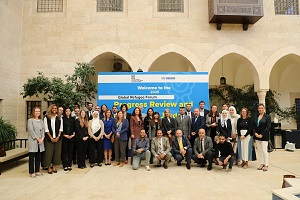
The Jordan Times
Amman — The Jordan Whole of Society Network for Displacement convened a national forum on Wednesday as part of the Global Refugee Forum (GRF) under the theme "From Pledges to Meaningful Impact for Refugees and Host Communities.”
The event brought together government officials, international organisations, civil society actors, academics, and private sector representatives to assess progress on refugee pledges and to map out a more sustainable, coordinated response for the years ahead.
The discussions focused on evaluating existing commitments in light of changing political and funding contexts, expanding partnerships, and promoting innovative, multi-stakeholder solutions aligned with the Global Compact on Refugees (GCR)."
"The best way to stabilise a country is through growth, and growth begins with jobs"World Bank Country Director Jean-Christophe Carret said.
Assessing integration and return
A major theme throughout the day was the shifting balance between integration and voluntary return for Syrian refugees in Jordan.
Samer representing Tkiyet Um Ali, noted that the rate of voluntary returns had declined in recent years, a sign, he argued, of deepening integration within Jordanian society.
"We must ask ourselves whether we are preparing for voluntary return or enabling long-term integration," he said.
A Jordanian academic went further, suggesting that social and economic realities are reshaping the very definition of displacement.
"People are no longer described as refugees," he said.
"They are Jordanians of Syrian origin. Economic partnerships, friendships, and marriages have blurred those lines."
Murad Al Masri, a Syrian refugee, has a masters degree in from Syrian university, reflected on how civil society support reshaped his own experience of displacement.
"When I arrived in Jordan, I discovered a new concept, civil society organisations that help communities lead and support themselves," he said.
"People used to fear social stigma when seeking psychosocial help, but now they are benefiting from these services. It has changed lives"
Government commitment and support
Ministry of Planning and International Cooperation (MoPIC) Secretary General, Marwan Refai reiterated the government’s commitment to sustaining support for both refugees and host communities.
He highlighted ongoing investments in education, healthcare, and municipal services, stressing that these efforts form the backbone of Jordan’s refugee response framework.
Murad from Qatar Charity Foundation underscored the organisation’s 13-year record of supporting Syrian refugees and pledged continued aid both within Jordan and inside Syria.
Economic Inclusion and Job Creation
The World Bank’s Jean-Christophe Carret outlined efforts to ensure that refugees are included in around 10 per cent of national development projects under Jordan’s current strategy.
"We’ve invested roughly $2 billion in projects across the region," he said.
"Given Jordan’s fragile economy, we are developing two new initiatives to create jobs, especially in agriculture. The best way to preserve the Jordanian dinar and strengthen stability is to expand employment opportunities for both refugees and Jordanians".
Deputy Chief of mission, Embassy of Japan, Tomoko Watanabe echoed this sentiment, describing Jordan as a regional model for resilience and inclusion.
"Jordan has hosted Circassians, Iraqis, Palestinians, and Syrians for decades," the representative said.
"This unique history demonstrates the need to build strong institutions, manage migration, and create a dignified future for all."
Private sector resilience
Osama Rayyan, representative of the Jordan Chamber of Industry (JCI), highlighted how Jordan’s private sector has adapted to regional and global shocks, from the 2003 Iraq war to the 2008 financial crisis and the Syrian conflict in 2013.
"We have partnered with the government and donors to ensure inclusivity in our projects. In each initiative, we employ at least six Syrians," Rayyan said.
"Our aim is to stabilise the labour market, expand decent work, and prepare for a digital and green economy".
He called for strengthening economic cooperation between Jordan and Syria, urging the reconstruction of trade routes and industrial partnerships.
"Syria was once both a market and a gateway for Jordan," he said.
"We must rebuild not just infrastructure but also skills, expertise, and cross-border industries."
Investing in Youth and Skills
Senior Vice President Programmes and Partnerships of Al Ghurair Foundation, Dana Dajani, spoke about empowering displaced youth aged 18–35 through education and vocational training.
"We are helping young people complete their studies and acquire new skills to rebuild their lives,"she said.
"Our focus is on sustainable, locally driven financial models rather than short-term training".
The Netherlands’ PROSPECTS partnership outlined its three key pillars for the coming year;
Normalisation, promoting mobility and regional employment opportunities.
Institutional strengthening, ensuring service delivery benefits both Jordanians and refugees.
Collaboration, connecting humanitarian, economic, civil society, and educational networks.
Refugee activist LinaShuqair, Co-founder of "This Is My Life" initiative, expressed concerns about the conditions for return to Syria.
"Infrastructure remains unstable and safety is still our main concern," she said.
"Many refugees have debts; medical, educational, or housing-related. We must move from humanitarian aid to empowerment through education and training".
Mohammad Sharaa, a Syrian refugee living in Mafraq, described the challenges of limited work permits and low wages.
"There are few legal jobs, and salaries are barely enough to live on," he said.
"Inclusive policies are vital so that locals and refugees alike can thrive".
Professor Saleh Zyoud of Al al-Bayt University added that supporting refugees is a moral duty.
"Jordan must be backed by international loans and aid to sustain services for host communities," he said.
The 2023 Global Refugee Forum generated over 1,700 pledges globally, reaffirming commitment to supporting refugees and host nations.
As one of the world’s largest refugee-hosting countries and a co-convener of the GRF, Jordan made three multi-stakeholder pledges and more than 50 commitments under its whole-of-society approach.
Latest News
-
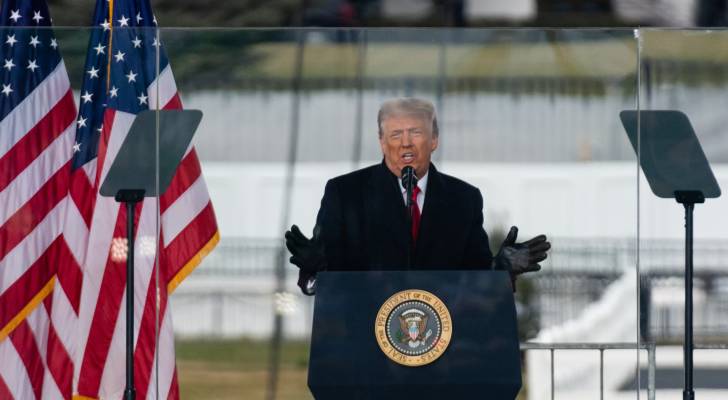 BBC accused of doctoring Trump speech to suggest he incited Capitol riot
BBC accused of doctoring Trump speech to suggest he incited Capitol riot
-
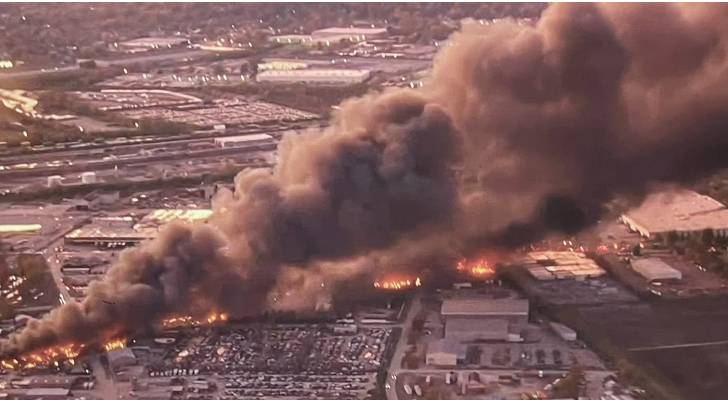 UPS cargo plane crashes near Louisville airport
UPS cargo plane crashes near Louisville airport
-
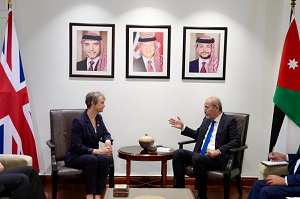 Jordan, UK discuss strengthening ties and humanitarian efforts in Gaza
Jordan, UK discuss strengthening ties and humanitarian efforts in Gaza
-
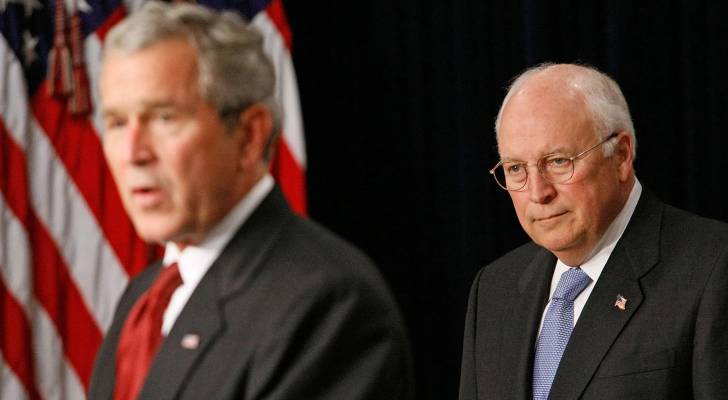 Former US vice president Dick Cheney, architect of Iraq War, dies at 84
Former US vice president Dick Cheney, architect of Iraq War, dies at 84
-
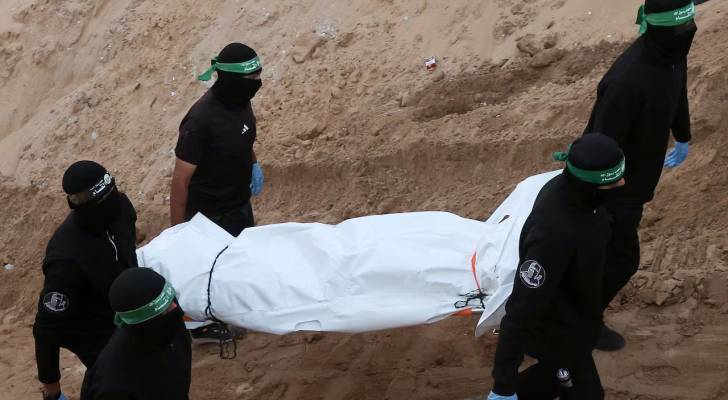 Qassam Brigades announce discovery of 'Israeli' soldier’s body in Gaza
Qassam Brigades announce discovery of 'Israeli' soldier’s body in Gaza